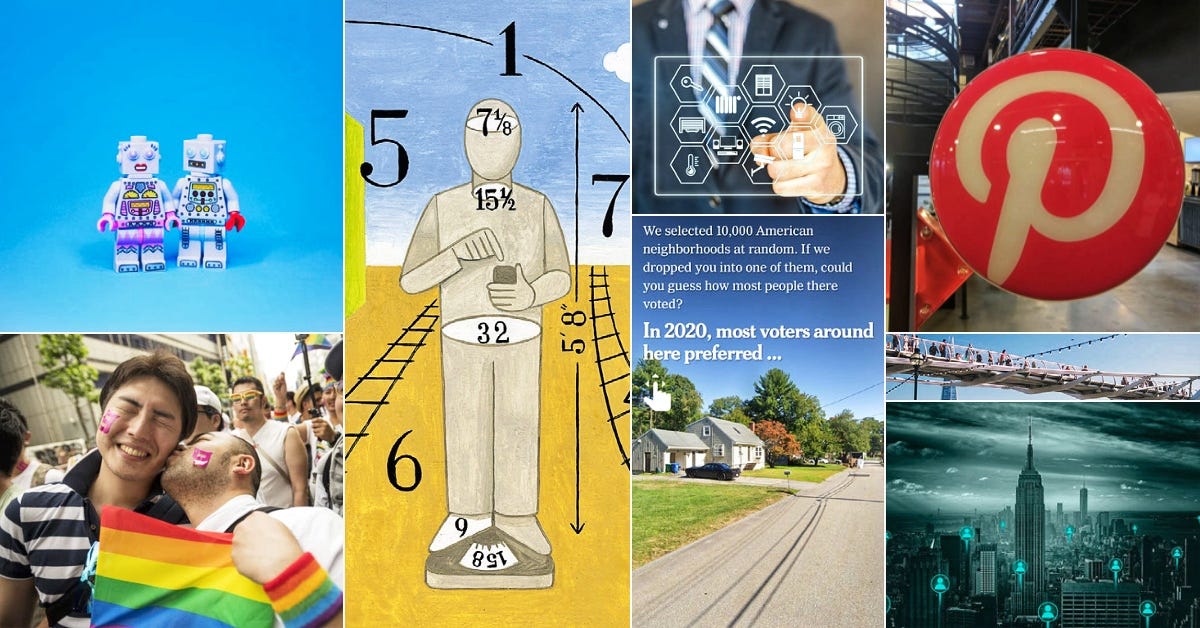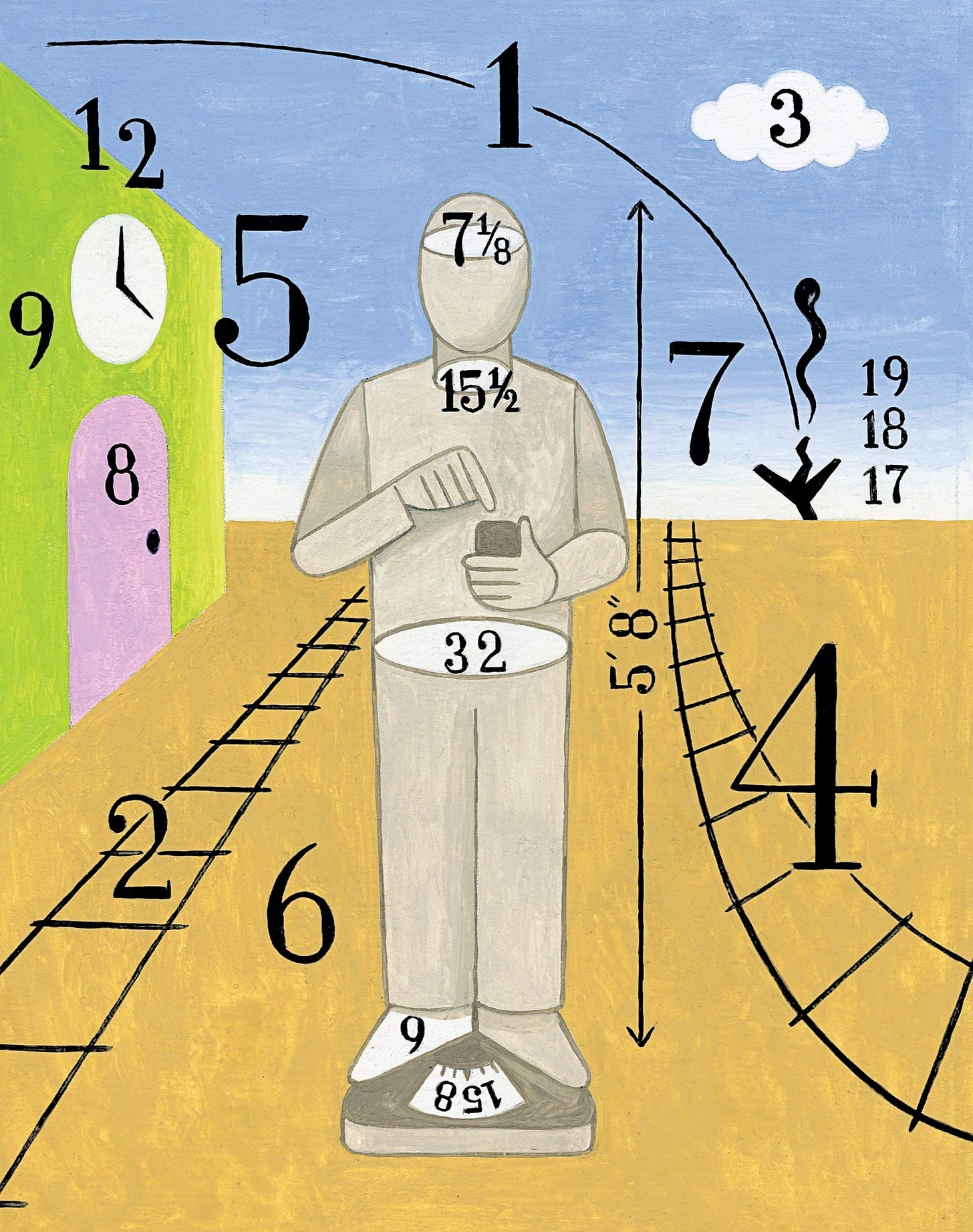What I read online #17
Human bias, stereotypes, US elections, sexism, robots, Japan, LGBTQ rights, London Datastore statistics, data market trends, Pinterest, Big Data, OSS, weather alerts, smart devices
If you find this newsletter interesting, follow @whatireadonline on Twitter, consider sharing it with your network, or subscribe if you haven’t already.
Can you tell how a neighbourhood voted (in the last US elections) just by looking around?

Oops!... The New York Times did it again. In October 2020, only a week away from the US presidential elections, NYT readers were asked to guess — based on the inside of a person’s refrigerator — whether they are voting for Donald Trump or Joe Biden for president. At the time, the paper was called out for “… engaging in stereotypes …” and “… a needlessly classist example of how Americans operate, particularly when it comes to assuming someone's political positions …”. Last week NYT asked people to guess how most people voted in 10,000 randomly selected American neighbourhoods, based on 360-degree pictures of these neighbourhoods in Google Maps.
What do you think, is this a game quiz normalising stereotypes or is it a test for everyone to check their biases?
Turns out people are sexist to female robots too

In a study published in Psychology & Marketing researchers found that consumers tend to perceive female robots as been warmer, more trustworthy and having more positive human traits than male robots, according to The Byte - Futurism.
Ward in Tokyo has begun certifying LGBT+ couples and their children as families
In Japan, a country that does not yet recognise same-sex marriage, LGBTQ+ couples increasingly face difficulties in being able to sign a joint housing rental contract, make medical decisions for their partners, have co-parenting rights or become beneficiary of the partner’s life insurance. But changes are being made at local government levels. According to PinkNews, as of Thursday 1 April, the Adachi ward is the first municipality in Japan’s capital to acknowledge queer couples’ children – biological or adopted – as their family members.
London Datastore Update - March 2021
510,806 bicycle hires in February 2021 (-20.3% vs. February 2020), decreased number of journeys across all transport types from the previous year due to the social distancing rules put in place during the COVID-19 pandemic, and the unemployment rate at 7.2% for January 2021. vs 4.5% on January 2020. These and more interesting findings for the economy, jobs, transport, environments, community safety, housing, communities, and health in London, check the London Datastore Dashboard (March 2021).
Looking ahead to the future of computing and data infrastructure

Spend a significant amount of time last week researching database and data infrastructure market trends for 2021. According to Bucky Moore of Kleiner Perkins VC, the 2021 emerging patterns and what is likely to happen over the course of the next few years, include a new cloud data “platform", serverless clouds, more business processes written and treated as code, and the ML infrastructure undergoing a consolidation phase.
What Data Can’t Do
The key to solving many problems in business and life, in general, is measuring. Understanding the power of measurement makes people, those around them and organisations, more efficient and productive. Yet, the things we regularly measure because it’s easy to do so, are not the same as the things we need to measure in terms of the decision or decisions these need to support. The New Yorker seems to agree, according to this article: numbers are both powerful and perilous, and when it comes to people, policies, algorithms, we should know what data can’t do and what shouldn’t be counted.
Pinterest open-sources big data analytics tool Querybook
According to the VentureBeat article, Pinterest has recently open-sourced Querybook, a data management solution for enterprise-scale remote engineering collaboration. The company says the tool, which it uses internally, can help engineers compose queries, create analyses, and collaborate with one another via a notebook interface.
Weather alerts may be the smartest use of smart lights

Also last week, I spend some time automating (or trying to) switching our LED lights strips on and off, based on sunset time. On a more serious note, according to Digital Trends, weather alerts may be the smartest use of smart lights and for certain groups of people, smart alerts can actually save lives.






